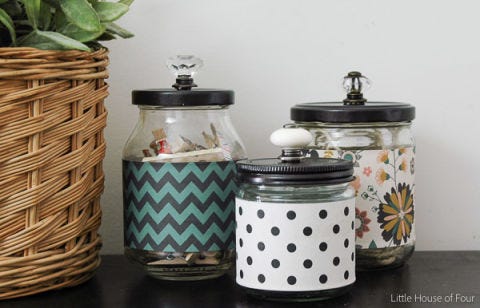
7 Practical Ways to Care for the Environment as a Christian
Share
"As every man has received the gift, even so minister the same one to another, as good stewards of the manifold grace of God."
1 Peter 4:10
The Bible's message that humans should be good stewards of God's blessings must speak to us today more than ever, as environmental issues affect the world more severely. God's word calls us, Christians, to actively take part in environmental conservation. It is our responsibility, and one that we can concretely take heed every day.
So as Earth Day approaches, here are doable tips on caring for the environment -- try these daily and make them a Christian habit.
1. Buy less.
We may not notice it, but many of us have a consumerist attitude: we're used to buying all sorts of material goods, even those that are redundant or unnecessary. As a result, we contribute to a culture of waste. For instance, did you know that Americans waste about 150,000 tons of food every single day?
In our Christian living, it is time to rethink the items that we buy and accumulate (and those that we never even use!). Moderation in our consumption helps reduce not only our own garbage but also the waste that is produced along the manufacturing process and supply chain. As a great bonus, this is one way to lessen our fixation on material things and focus more on the spiritual.
2. Use less plastic.
Nonbiodegradable materials like plastic and styrofoam end up as garbage in our waterways and into the ocean, where they harm animals and ecosystems. Reduce your non-bio waste by opting for more natural materials. Take a cloth bag with you when you do groceries. Bring a reusable water bottle instead of buying one. Refuse plastic straws whenever you can. And go for brands that have reusable or recyclable packaging.
3. Reuse what you can.

Don't just throw away those bottles, cans, and boxes after you've emptied them. Think of creative ways that you can reuse them. Better yet, get into the hobby of "upcycling", which is crafting things that seem like trash and turning them into more useful (and attractive) items. We found some great ideas you can try at home, here.
There is also a growing movement these days of brands offering 'refill stations'. You can refill your empty shampoo bottle, for example, instead of throwing it out and buying a new one. Keep your eye out for these developments in your area.
4. Donate instead of throwing away.
If there are things that you no longer wish to keep, consider donating them to those who could really use them. You can look for local donation centers in your area, or organize a donation drive yourself. With this, you'll be preventing a lot of waste while helping those in need.
5. Switch off and unplug.
The electricity that's used in most of our homes come from carbon-based fossil fuels that affect the climate. Use less of it by switching off and unplugging appliances that are not in use. It's such a basic habit, but if your entire household practices it daily, you'll be surprised at the reduction in your power bill -- and in your carbon footprint.
6. Walk or bike instead of driving.
Also using carbon-based fuels are most of the motor vehicles that we use today. It is commendable when people choose 'green cars' or hybrids because they care about their carbon emissions. But you don't have to switch your car just for this. You can cut down on your driving instead. Start by leaving your car and opting instead to walk or bike when you're just going to a nearby location.
7. Grow your own food.
In the spirit of buying less waste and cultivating more greens, why not try your hand at gardening food? You can start by planting low-maintenance herbs like oregano, chives, mint, and onions. You can even grow these in individual pots indoors. Once you've developed a green thumb, you may want to transition to vegetable gardens and eventually enjoy fresh, all-natural food on your table.
These sustainable, eco-friendly tips all boil down to one responsibility: to be conscious and deliberate when it comes to our everyday material things. It may seem like one big behavior change, but if you try to practice these small ways daily, you'll soon find it easier to be a good steward of God's gifts.
Do you have a tip to add? Do share with us in the comments. Happy stewardship, from us at ChristianStyle.com!






